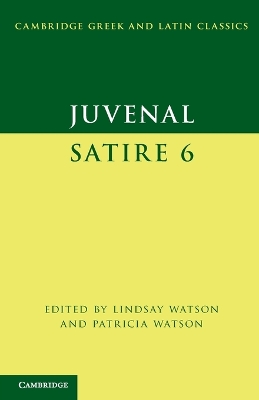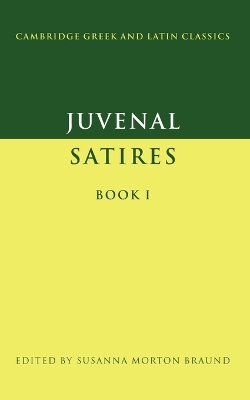Cambridge Greek and Latin Classics
2 total works
Juvenal's sixth Satire is a masterpiece of comic hyperbole, an outrageous rant against women and marriage which, in its breadth and density, represents the high point of the misogynistic literature of classical antiquity. The Introduction situates Juvenal within the wider tradition of Roman satire, interrogates afresh the poem's architecture and recurrent themes, shows how Juvenal systematically attributes to his monstrous women the inverse of the Roman wife's canonical virtues, traces the various literary currents which infuse the Satire, and lastly addresses the much-discussed issue of the poetic voice or persona from a sociohistorical as well as a theoretical perspective. Above all, the commentary strives to locate Juvenal in his historical, literary and cultural context, while simultaneously affording assistance with the nuts and bolts of the Latin, and always keeping in view two key questions: what was Juvenal's purpose in writing the Satire? How seriously was it meant to be taken?
Satire was a genre of poetry invented and developed by the Romans. When it came into Juvenal's hands, he stamped his mark upon it: indignation. His angry voice had an overwhelming influence upon later European satirists and persists in modern forms of satire. In this new commentary, Susanna Morton Braund situates Juvenal within the genre of satire and illuminates his appropriation of the 'grand style' of declamatory rhetoric and epic poetry for his indignant persona in Satires 1-5, including the notorious second Satire. The commentary on each of the Satires is followed by an essay which offers an interpretation of the poem, including a synthesis of recent critical thought. These essays, together with the overview in the Introduction, present the first integrated reading of Book I as an organic structure.

